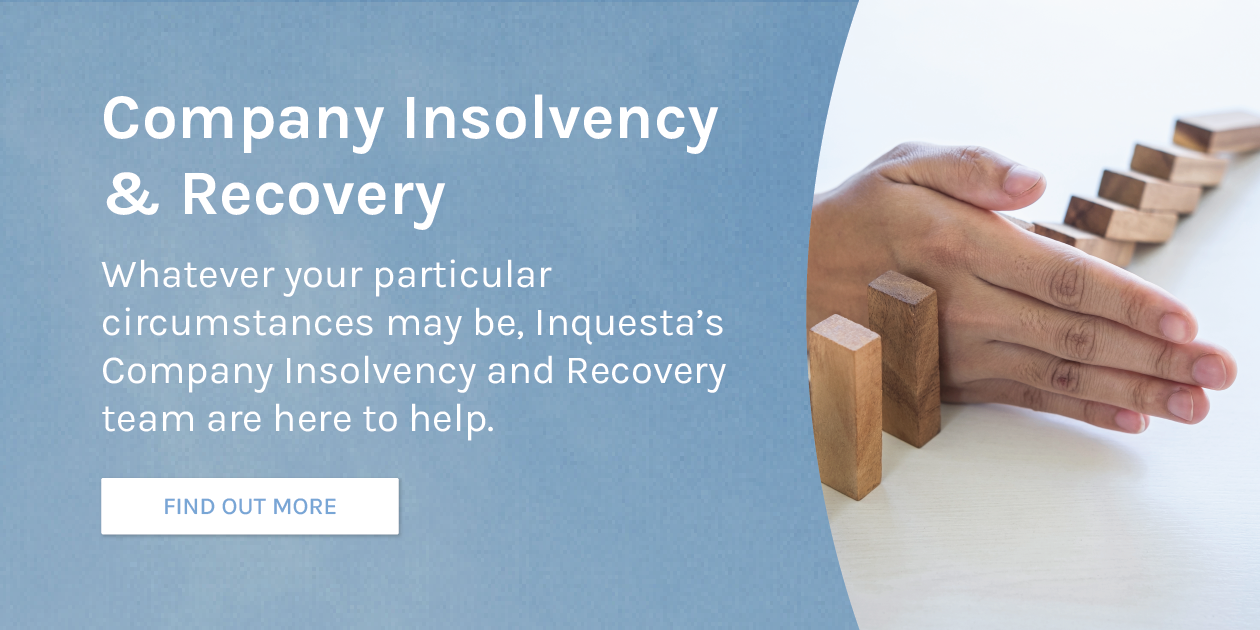About Insolvency Practitioner
Wiki Article
3 Simple Techniques For Insolvency Practitioner
Table of ContentsA Biased View of Insolvency Practitioner7 Simple Techniques For Insolvency PractitionerInsolvency Practitioner Things To Know Before You Get ThisFacts About Insolvency Practitioner UncoveredAbout Insolvency Practitioner
Whether you need to use a bankruptcy expert (IP) to liquidate your firm depends on numerous variables. While involving an insolvency specialist for all forms of liquidation is not a legal demand, doing so can typically streamline the process and make certain conformity with legal demands. Liquidating a company is a crucial choice that includes considerable repercussions.
It is a procedure made use of when a firm does not have any type of lenders, or every one of their lenders can be settled in full with legal rate of interest. Comprehending the different kinds of bankruptcy processes can help you establish the best strategy for your firm's liquidation or other formal bankruptcy treatments itself.
This is required in order to stick to legal requirements - Insolvency Practitioner. This is due to the fact that IPs have the required qualifications and experience to make sure that the liquidation process is conducted in accordance with all suitable regulations and laws. By engaging a qualified bankruptcy professional, you can have satisfaction recognizing that your firm's liquidation procedure will be taken care of expertly and in compliance with the relevant lawful demands
Insolvency Practitioner - An Overview
The bankruptcy specialist is designated as a liquidator and is accountable for taking care of the company and liquidator's financial obligations superior liabilities and possessions. This procedure entails selling off the business's possessions and dispersing the proceeds to lenders. Upon completion of the process, the business is eliminated from the register at Firms Home.Falling short to do so can cause individual liability for the business or supervisor for the lender's financial obligations. Voluntary liquidation, that includes Lenders' Voluntary Liquidation (CVL) and Members' Voluntary Liquidation (MVL), is started by the company's supervisors and investors when they can no much longer pay their debts. In a CVL, the insolvency expert is marked as the liquidator, liable for taking care of business debts and all firm assets.
.jpg)
What Does Insolvency Practitioner Do?
By analyzing the proficiency and experience of potential bankruptcy experts, you can ensure that you select a professional who possesses the needed credentials to manage your business's liquidation process efficiently. While insolvency practitioner-led liquidation is often one of the most suitable training course of activity for companies dealing with insolvency, there are different methods to consider, such as striking off and partial liquidation.It's important to examine here all available options before picking the next best remedy or strategy for your service. Striking off firms' registers is a more simple and cost-effective means to shut inactive or small business without any debts or assets. To strike off a business, its name is removed from the Firms House register by sending type DS01.
Before going visit the website with striking off, it's crucial to consider the advantages and downsides of this technique and consider whether it's the ideal choice for your company. Partial liquidation is an additional alternative to insolvency practitioner-led liquidation, where a firm liquidates specific possessions and obligations while remaining to run with the continuing to be possessions and responsibilities.
A Bankruptcy Specialist will have the ability to advise you of the very best strategy to take and make sure that everything runs smoothly. It is not possible to sell off a firm without a liquidator. Appointing an authorized bankruptcy professional is necessary for the process of volunteer liquidation to start.
The smart Trick of Insolvency Practitioner That Nobody is Talking About
It is feasible to shut and liquidate your business without making use of a liquidator, provided your company is solvent and you satisfy the eligibility needs to dissolve or liquidate it. Nonetheless, if your company is financially troubled, you might be required to use a liquidator and start formal insolvency treatments. Here are some other useful articles relating to company liquidation in the UK:.Being in a setting where you're unable to pay your firm's financial institutions is very stressful. In an attempt to avoid increasing the degree of debt, many companies attempt to bargain straight with their creditors and consent to an informal plan. If the debt is quite tiny and owed to one creditor, and the lender is being cooperative, getting in into an informal financial debt setup is most likely the very best option, as opposed to looking the internet for 'an insolvency expert near me'.
On the various other hand, if there are numerous financial institutions and the degree of financial obligation is large, financial institutions may not be so eager or participating. In order to avoid liquidation or bankruptcy, it is far better to hire a bankruptcy practitioner to create formal propositions and discuss with lenders on your part.
See This Report about Insolvency Practitioner
Whilst it is a method to handle financial debt, there are considerable risks entailed with this kind of financial obligation arrangement - Insolvency Practitioner. If a financial institution wants to enter into a casual arrangement (IA) whereby the debtor has accepted make routine, if reduced, settlements to pay off the financial obligation, it is essential to stick to the contract
The creditor is within their rights to back out of i thought about this the contract and request the courts for your company to be sold off at any kind of time. An official plan that has been proposed by an insolvency specialist on your part, and concurred by a creditor, supplies a much more secure alternative.
Report this wiki page